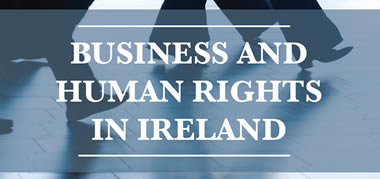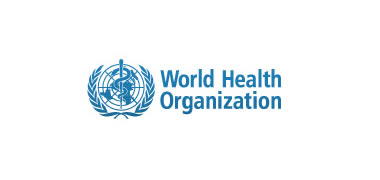-
Courses

Courses
Choosing a course is one of the most important decisions you'll ever make! View our courses and see what our students and lecturers have to say about the courses you are interested in at the links below.
-
University Life

University Life
Each year more than 4,000 choose University of Galway as their University of choice. Find out what life at University of Galway is all about here.
-
About University of Galway

About University of Galway
Since 1845, University of Galway has been sharing the highest quality teaching and research with Ireland and the world. Find out what makes our University so special – from our distinguished history to the latest news and campus developments.
-
Colleges & Schools

Colleges & Schools
University of Galway has earned international recognition as a research-led university with a commitment to top quality teaching across a range of key areas of expertise.
-
Research & Innovation

Research & Innovation
University of Galway’s vibrant research community take on some of the most pressing challenges of our times.
-
Business & Industry

Guiding Breakthrough Research at University of Galway
We explore and facilitate commercial opportunities for the research community at University of Galway, as well as facilitating industry partnership.
-
Alumni & Friends

Alumni & Friends
There are 128,000 University of Galway alumni worldwide. Stay connected to your alumni community! Join our social networks and update your details online.
-
Community Engagement

Community Engagement
At University of Galway, we believe that the best learning takes place when you apply what you learn in a real world context. That's why many of our courses include work placements or community projects.
2012
All 2012
Immortal Marine Invertebrate Helps Stem Cell Scientist

Friday, 29 June 2012
Dr Uri Frank announced as a recipient of SFI Principal Investigator Programme Award A leading stem cell scientist at NUI Galway, Dr Uri Frank, was today announced as a recipient of an SFI Principal Investigator Programme Award by Richard Bruton, TD, Minister for Jobs, Enterprise & Innovation. A native Irish marine invertebrate, with amazing powers of regeneration, is the focus of Dr Frank’s research with NUI Galway’s Regenerative Medicine Institute (REMEDI). Hydractinia echinata has the power to regenerate any lost body part throughout its life, can clone itself, does not age biologically, and in theory – lives forever. A relative of jellyfish, sea anemones and corals, this tiny creature is perfect for understanding the role of stem cells in development, ageing and disease. “Hydractinia has some stem cells which remain at an embryonic-like stage throughout its life, so the potential for research is immense”, explains Dr Frank. “Not only that, but it is small and translucent and so enables the observation of experimentally labelled stem cells in the living animal.” Dr Frank and his team have already made a discovery which may have important implications in understanding normal development, congenital defects and cancer biology. “Recently, we have been able to demonstrate a hitherto unknown link between heat shock proteins and Wnt signalling in Hydractinia stem cells. These two cellular signalling mechanisms are known to play important roles in development and disease, so they have been widely, though separately, studied. We have shown that they talk to each other, providing a new perspective for all scientists in this field,” says Dr Frank. Also of interest to Dr Frank’s research team is the evolution of animals and humankind. Scientists believe that all animals living today, including invertebrates and humans, are the descendants of a single common ancestor that lived hundreds of millions of years before the times of the dinosaurs. Therefore, invertebrate stem cells should be very similar to their human counterparts and studying them may provide information on human stem cells. “It sounds gruesome, but if Hydractina has its head bitten off, it simply grows another one within a few days using its embryonic or ‘pluripotent’ stem cells. So why don’t humans keep their pluripotent cells as adults? Why do we lose them when we age?”, asks Dr Frank. Dr Frank’s SFI-funded project is an example of how basic research on model organisms can contribute to human health. By discovering things that are difficult to study in more complex animals, it complements work done on mammals, is informative, cheap and free of ethical considerations. ENDS Photo by Dr Yuki Katsukura
>> Read full story about Immortal Marine Invertebrate Helps Stem Cell Scientist
The Miracle of the Parish: Máire Mhac an tSaoi Symposium at NUI Galway

Tuesday, 1 May 2012
The Centre for Irish Studies at NUI Galway is delighted to announce a symposium on the work of Máire Mhac an tSaoi, one of the most significant Irish poets of the twentieth century, and the most important living poet in Irish. The event will take place on Wednesday, 23 May in the Moore Institute at 9.00am With Máirtín Ó Direáin and Seán Ó Ríordáin, Máire Mhac an tSaoi revolutionised the practice of poetry in Irish in the 1940s and 50s and paved the way for a new generation of women poets who emerged in Irish and in English in the 1970s and 80s. A generation before Nuala Ní Dhomhnaill and Eavan Boland, and in more difficult circumstances, Máire Mhac an tSaoi gave voice to the intimate and subversive aspects of women’s experience in poems that challenged the moral orthodoxies of the time. “Although her work and influence is acknowledged by poets and critics alike,” according to Louis de Paor, Director of the Centre for Irish Studies, “this is the first such event dedicated entirely to her work and includes contributions from some of the finest scholars and critics of poetry in Irish. Given her connection with the University where she was appointed Honorary Professor of Irish Studies in 2004, and her uncle Monsignor Pádraig de Brún, served with such distinction as president, we are delighted to recognise her unique contribution to Irish writing.” Máire Mhac an tSaoi’s autobiography The Same Age as the State, published in 2003, was described by Seamus Heaney as ‘thrilling and exemplary’ and a bilingual selection of her poems An Paróiste Míorúilteach/The Miraculous Parish was launched by Fiach Mac Conghail, Director of the Abbey Theatre, at a gala event inDublinCastle in November 2011. Invited speakers to the NUI Galway symposium include Micheál Mac Craith, Margaret Mac Curtain, Máire Ní Annracháin, Máirín Nic Eoin, Caoimhín Mac Giolla Léith, Ríóna Ní Fhrighil, Eiléan Ní Chuilleanáin and Patricia Coughlan, and the proceedings will be recorded by RTÉ radio for broadcast later in the year. Admission to all sessions is free and everyone is welcome to attend. For further details, contact Samantha Williams at irishstudies@nuigalway.ie or 091 492051 ENDS
>> Read full story about The Miracle of the Parish: Máire Mhac an tSaoi Symposium at NUI Galway
Government Must Ensure Businesses Respect Human Rights

Tuesday, 1 May 2012
A new report calls on the Government to ensure that companies respect human rights and to provide guidance to businesses on the requirements of human rights due diligence, including when operating overseas. Such due diligence should be a mandatory requirement underpinned by legislation, according to the report’s authors at the Irish Centre for Human Rights in NUI Galway. ‘Business and Human Rights in Ireland’ aims to contribute to policy, practice and law on business and human rights in Ireland. The report will be officially launched this evening by Professor Michael O’Flaherty, who is a member of the United Nations Human Rights Committee and Chief Commissioner of the Northern Ireland Human Rights Commission. Illustrative examples of business negatively impacting on human rights provide a context for the report. Prominent examples mentioned in the report include Irish technology companies implicated in Syrian censorship, the Corrib gas dispute involving Shell and Statoil, the working conditions of migrant workers engaged in mushroom picking, the treatment of GAMA construction workers, and the working conditions in the supply chain for Penneys/Primark. Multinational companies headquartered in Ireland, such as Apple, are also relevant according to the report authors, as they have been criticised for their human rights record. In 2011, the United Nations adopted Professor John Ruggie’s Framework for Business and Human Rights, which emphasises a state duty to protect human rights, a corporate responsibility to respect human rights and the need to strengthen remedies to respond to violations of human rights by business. This UN framework provides guidance for States such as Ireland, although aspects of its practical impacts on issues such as Irish businesses operating abroad have yet to be put into practice. Ireland represents an obvious case study in this context, given the presence of numerous multinational corporations, increasing privatisation of public services and allegations of corporate involvement in human rights violations both in and outside of Ireland. “State representatives frequently assert Ireland’s commitment to the United Nations and human rights, although the Government has yet to issue a comprehensive policy document on business and human rights,” explained Dr Shane Darcy of NUI Galway’s Irish Centre for Human Rights. In the context of an open export-led economy reliant on foreign direct investment with numerous multinational corporations present in Ireland, extraterritorial jurisdiction is particularly could prove of considerable relevance here. “The concept of extraterritorial jurisdiction as a means of ensuring the State protects against human rights violations by business when acting outside of its territory is particularly relevant in the context of a globalised economy and the transnational nature of many business activities. Ireland provides for some limited oversight or adjudication of extraterritorial activities of Irish companies, but it remains underutilised as a means of ensuring compliance with the State duty to protect human rights in the context of business. Another recommendation of the report is that there be requirement of human rights compliance and reporting by business for public procurement contracts, State investment or listing on the Irish Stock Exchange. A full copy of the report is available at www.nuigalway.ie/human_rights -ends-
>> Read full story about Government Must Ensure Businesses Respect Human Rights
Clinical Trial Targets Acute Respiratory Distress Syndrome with Cholesterol Drug

Tuesday, 1 May 2012
NUI Galway and Queen’s University Belfast are leading a clinical trial to investigate the possibility that statins, a drug commonly used to combat cholesterol, might help patients with acute severe respiratory failure. Some 150 patients have been recruited into the trial, which is being run in collaboration with the Irish Critical Care Trials Group, across multiple intensive care units on the island of Ireland, and in England and Scotland, with a target number of 540 patients. The research is being funded by the Health Research Board, and the Efficacy and Mechanism Evaluation programme which is funded by the Medical Research Council and the National Institute for Health Research (NIHR), with contributions from the CSO in Scotland, NISCHR in Wales and the HSC R&D, Public Health Agency in Northern Ireland, and is managed by the NIHR. When people become critically ill, for various reasons including major surgery or following injury in a road traffic accident, or infections such as H1N1 influenza, their lungs often fail, which is termed ‘Acute Respiratory Distress Syndrome’. This condition, which is primarily caused by the body’s immune system response to the injury, is common, can affect any age group, and is often fatal. Furthermore, even after recovery from lung injury, patients subsequently experience a poorer quality of life. Many survivors of this condition are unable to return to work or look after themselves. “Unfortunately, to date there is no effective treatment for this lung injury”, said Professor John Laffey who is Professor of Anaesthesia at NUI Galway and Consultant Anaesthetist at Galway University Hospitals. “We are investigating if the drug simvastatin, commonly used to treat high cholesterol, is safe and effective in the treatment of this lung injury. A unique feature of this study is that it is a study generated from Irish research efforts, and is an Irish-led multi-national study, being conducted across the island of Ireland, and also in intensive care units in England and Scotland.” Professor Laffey continued: “This study builds on a series of studies using simvastatin, including a smaller clinical trial funded by the Health and Social Care Research and Development Division, Public Health Agency for Northern Ireland and REVIVE, carried out by Professor Danny McAuley and his team in the Belfast Health and Social Care Trust, who are our partners in this study. These studies offer considerable hope that simvastatin might help sufferers from this devastating disease. The study may take up to five years to complete, but if simvastatin is effective, it would help save the lives of these sufferers, improving the quality of life of survivors and potentially reduce costs, by reducing time spent in intensive care units.” The study team comprises experts in study design based at the HRB Galway Clinical Research Facility and at the Clinical Research Support Centre in the Belfast Health and Social Care Trust, as well as senior doctors who work in critical care units, and experts in acute lung injury. Professor Danny McAuley, who is Professor of Intensive Care Medicine at Queen’s University Belfast and Consultant Intensivist at the Royal Victoria Hospital, explained: “We will also take blood samples to measure markers of inflammation which will allow us to determine if simvastatin can reduce the immune response which causes the lung injury. In addition, we will determine how severe the damage to the patients’ lungs is, and how fast they recover.” People will be randomly divided into two groups; one group will be given the active drug and the other a placebo. This design means that any difference in the experience of patients will be due to whether or not they received simvastatin and not to any other difference that could influence the outcome of treatment. Frank Giles, who is Professor of Cancer Therapeutics at NUI Galway, is also Director of the HRB Clinical Research Facility at NUI Galway, which is helping co-ordinate the clinical trial in Ireland: “Participants in this trial are helping address a vital and difficult medical problem. This study is typical of an increasing number of multi-center trials that are possible because of increasing collaboration between Ireland’s HRB-funded Clinical Research Facilities. The studies involve patients with a very broad spectrum of health challenges. The conduct of these studies, which involve our patients and their families, community health-care staff, hospitals, research institutes and industry partners, improves health care and ensures that Ireland continues to make a significant increasing contribution to global medical progress.” ends
>> Read full story about Clinical Trial Targets Acute Respiratory Distress Syndrome with Cholesterol Drug
WHO Report Reveals Teenagers Do Not Get a Fair Deal on Health

Wednesday, 2 May 2012
Widespread inequalities mean that many young people in the WHO European Region and North America are not as healthy as they could be, according to a new report on the Health Behaviour in School-aged Children (HBSC) study, published today (Wednesday, 2 May) by the WHO Regional Office for Europe.* The HBSC Ireland study is based in the Health Promotion Research Centre at NUI Galway. “Adolescence is a crucial life stage, when young people lay the foundation for adulthood, whether healthy or otherwise,” said Zsuzsanna Jakab, WHO Regional Director for Europe. “This report shows us that the situation across Europe is not fair: health depends on age, gender, geography and family affluence. But it doesn’t have to be that way. This report gives policy-makers an opportunity to act to secure the health of the next generation. Once again, young people have used the opportunity provided by HBSC to speak. It now falls to us – who cherish their aspirations, ambitions, health and well-being – to act.” Dr Saoirse Nic Gabhainn, Principal Investigator for HBSC Ireland of the Health Promotion Research Centre, NUI Galway said: “This data are vital to support young people to be healthy and happy, policy makers and practitoners need to recognise that differences in the context of young people’s lives are important and we need to be sensitive to age, gender and socio-eoncomic differences.” The report gives the results of the 2009/2010 HBSC survey, covering 39 countries and regions across the European Region and North America. The survey collected data from 11-, 13- and 15- year-olds on 60 topics related to their health and well-being, social environments and behaviour. HBSC reports have been issued every four years since 1996. Cross-national differences The latest report reveals important inequalities between countries. For example, rates of overweight and obesity for girls aged 11 range from 20% in Portugal and 30% in the United States of America, to only 5% in Switzerland (18% in Ireland, rank 3rd). Smoking rates, although fairly similar at age 11 (under 1%), differ dramatically across countries by age 15: over 25% in Austria and Lithuania, but 10% in Norway and Portugal (13% in Ireland, rank 30th). This suggests that the socioenvironmental context can be changed to benefit young people’s health. Young people’s experience of school also differs; 89% of 11-year-old girls in the former Yugoslav Republic of Macedonia like school, in contrast to 17% in Croatia (34% in Ireland, ranks 31st). Long term effects of adolesent health Health inequalities emerge or worsen during adolescence, and may translate into lasting inequalities in adulthood if, for example, academic potential is not achieved. Adolescence is clearly a key stage for mental health, especially for girls. Girls’ satisfaction with their lives declines between ages 11 and 15. In Poland and Sweden, this decrease is around 15%, in contrast to 5% for boys (in Ireland the decrease is 12% for girls and 6% for boys, ranking 13th at age 11 and 30th at 15). In addition, health-compromising behaviour increases during the adolescent years. Between ages 11 and 15, the average proportion of young people who report weekly smoking and drinking increases by 17%. Many of these young smokers will continue the habit throughout adulthood. Similarly, early sexual activity is an important marker for poor sexual health in adulthood, as well as other risk behaviour in adolescence. The report reveals that, on average, 26% of 15-year-olds are sexually active (in Ireland 22%, rank 28th). In addition, healthy behaviour, such as eating breakfast and fruit, declines. Gender differences Boys and girls display different patterns of healthy and unhealthy behaviour, particularly at age 15. Although boys are more likely to be involved in fights and bullying at all ages, a 15-year-old boy in Latvia is more than 12 times more likely to be bullied by his peers than a girl in Italy (in Ireland bullying is reported by 4% of 15 year old girls and 10% of 15 year old boys, ranking 27th) . In Armenia, boys are almost five times more likely than girls to have been drunk by age 15. In some Scandinavian countries and the United Kingdom, however, 15-year-old girls are more likely than boys to have been drunk, and to have had sexual intercourse (among 15 year olds in Ireland 28% of girls and 30% of boys have been drunk, ranking 22nd). Further, girls are more concerned about being too fat and to be on a diet, but less likely than boys to be overweight. Overall, around 40% of girls aged 15 report being dissatisfied with their bodies (46% in Ireland, rank 13th), and 22% are on a diet (21% in Ireland, rank 18th), although just 10% are actually overweight or obese (12% in Ireland, rank 11th). Family affluence Unsurprisingly, family affluence is associated with a healthier lifestyle: higher levels of fruit intake, breakfast consumption and physical activity. It is also associated with better communication with parents, greater support from classmates and numbers of close friends, and better mental health (in Ireland only fruit and breakfast consumption are higher among those with higher family affluence). The picture for risk-taking behaviour is more complex. In many countries and regions, family affluence has less influence on patterns of smoking and drinking; other social factors – such as the influence of peers – may be more important. Further, injuries increase with higher family affluence (this holds for Ireland). Protective factors Support from family and classmates protects young people from negative influences; those who report easy communication with their parents are more likely to report positive health outcomes. Having close friends and peer support is also a strong predictor of positive health. The more sources of support, the more likely young people are to report good health. The HBSC report shows that addressing the social determinants of health inequalities in childhood and adolescence can enable young people to maximise their health and well-being, ensuring that these inequalities do not extend into adulthood, with all the potential negative consequences for individuals and society. ENDS
>> Read full story about WHO Report Reveals Teenagers Do Not Get a Fair Deal on Health















